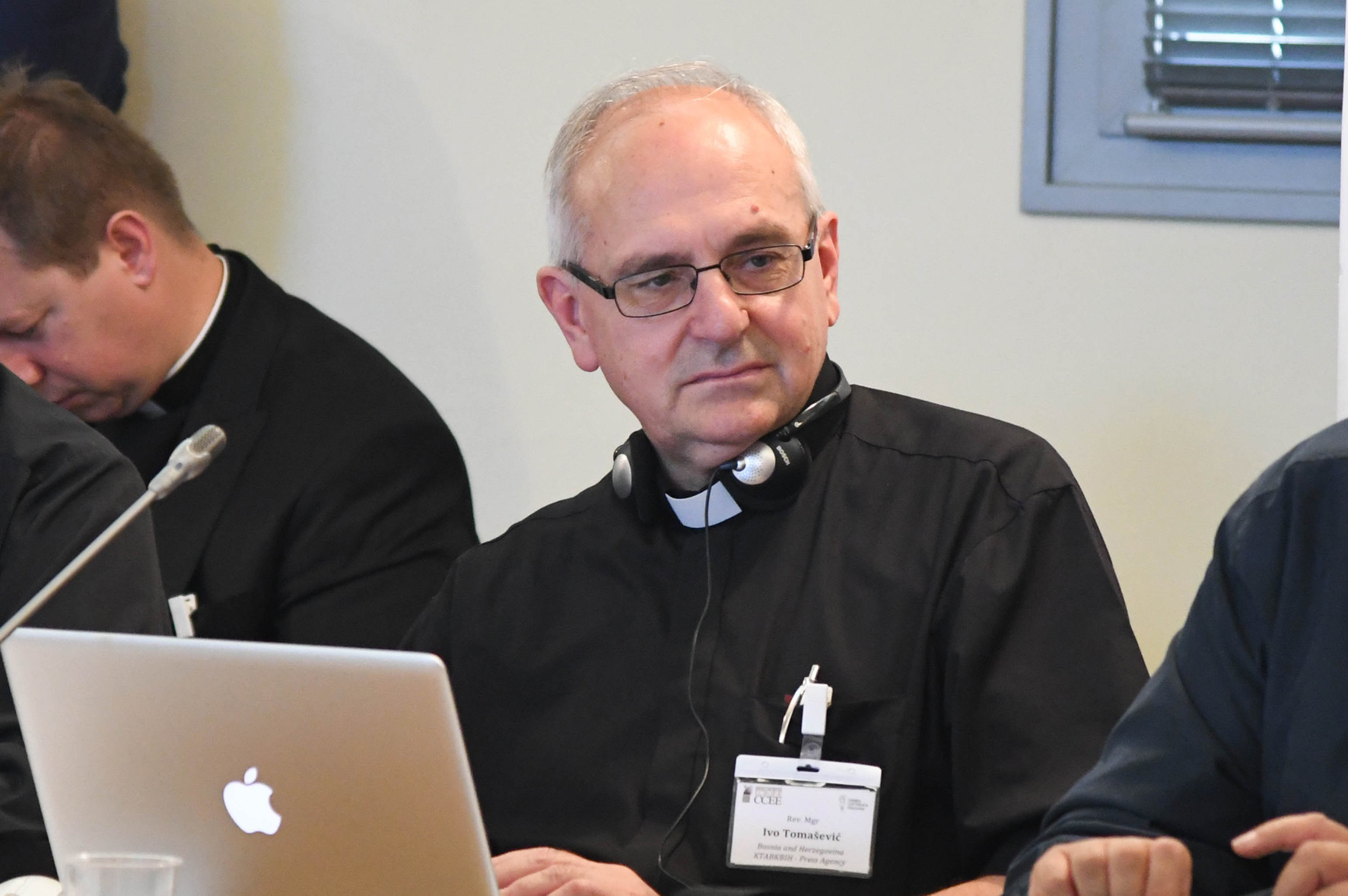
Four Presidents, two vice-Presidents, five parliamentary assemblies and ten Cantonal Assemblies. There are only 3.275 million citizens entitled to vote on Sunday October 7 in Bosnia-Herzegovina, but owing to the complex electoral system they are called to elect the national parliament, the three-member Presidency, the parliament of both sides – one Serb elected from Republika Srpska and one from the Federation of Bosnia Herzegovina with a Bosniak-Croatian majority. This complex situation is further aggravated by predominant nationalistic rhetoric characterising the election campaign.
Three-member presidency. The spotlight is on candidates running for State election, composed of 3 members representing the three major ethnic groups (Serbs, Croatians and Bosniaks). The leading Croatian candidates include the present member of Presidency, nationalistic Dragan Covic running for HDZ BiH (Croatian Democratic Union), against Zeljko Komsic for DF (Democratic Front), for the Serbs the outgoing President of the Serb Republic Milorad Dodik, (SNSD) running against the current member of Presidency Mladen Ivanic, and for the Bosniaks Denis Becirovic for the Social Democrats and Sefik Dzaferovic (SDA), Lower Chamber President.
 Unpredictable outcomes. In Sarajevo no one has great trust in the polls, largely manipulated by political parties. But it is expected that the Bosnians will again choose the old ethnic parties – SDA, the Bosnian party of Bakir Izetbegovic, member of presidency for two mandates, the Croatian HDZ led by Covic and the Serbian party “Alliance of Serbian Democrats” headed by Dodik.
Unpredictable outcomes. In Sarajevo no one has great trust in the polls, largely manipulated by political parties. But it is expected that the Bosnians will again choose the old ethnic parties – SDA, the Bosnian party of Bakir Izetbegovic, member of presidency for two mandates, the Croatian HDZ led by Covic and the Serbian party “Alliance of Serbian Democrats” headed by Dodik.
“Irregularities recorded already before election day”,
political analyst from Sarajevo Ivana Maric told SIR, who said she expects more vote-rigging on Sunday, “already signalled by the fact that the electoral rolls included deceased persons or local residents who have already voted abroad.” For someone coming across Bosnia and Herzegovina’s political life for the first time, the climate may appear awkward and tense, but Maric is not worried. “The situation is no different from previous elections – she pointed out – in fact, it’s even better today.” She added: “Interference from neighbouring countries, notably Serbia and Croatia, is often noted during national elections. And as often happens, all attacks will have been forgotten after the vote.”
Are Croatians discriminated against? Many Croatians living in Bosnia feel they are being discriminated against by the election system because the Croatian Presidency member can be elected with the votes of the Bosniaks, that outnumber Croatian citizens. However, for Maric, “this is not a problem: our Constitution does not specify that Crotians should vote Croatian candidates, Serbians the Serbs, and Bosniaks the Bosniaks. All it states is that the Presidency is composed of three members, a Croatian, a Serb and a Bosniak. But political parties interpret things according to what is most likel to ensure a win the elections.”
The opinion of the Church. “In Bosnia there are two kinds of political parties – said the Secretary General of the Bishops’ Conference of the Catholic Church Msgr.. Ivo Tomasevic -: those based on the ethnic principle and those claiming that we are all equal.” In his opinion, people continue to vote ethnic parties “for fear of losing the little they have in areas where they are a majority, and of being assimilated to their fellow-citizens and preceded at local or national level.” For Msgr. Tomasevic this a big problem especially for Croatians, “the least populous ethnic group.” Moreover, “although ethnic identity is important, we should not overlook other priorities that are seldom mentioned.”
Nationalitic rhetoric. “Instead of identifying the best ways to promote coexistence politicians exploit our differences to obtain power, making no effort whatsoever to trigger a positive change in people’s lives with a sound economy and a culture that promotes reconciliation”, went on the Bishops’ Secretary General. Maric equally noted “a crescendo of nationalistic rhetoric, especially in the last days of the election campaign.” “Perhaps a change is possible in Republica Srpska where SNSD, headed by Dodik (the President-in-office), is losing consensus, partly because of the ‘David case’, the boy killed in Banja Luka six months ago in very mysterious circumstances.” According to Maric,
“Dodik, Covic, Izetbegovic and many other candidates who have dominated local political life for over 20 years, are contradictory characters, with a shady past, suspected of corruption”, said the political analyst.
“They have nothing else to offer than nationalist rhetoric and their supposed defence of the interest of the people they represent, which is why they are putting at risk Bosnians’ prosperity to stay in power.” For Maric, the problem is not the Constitution or the Dayton agreement, but bad politicians.
The bishops’ message. “After the end of the war displaced people were unable to return to their homes, politics has been an obstacle in the life of many Catholics and priests”, pointed out the Secretary General of the Bishops’ Conference. “The same occurred – albeit on a smaller scale – to Muslim and Orthodox faithful.” “In the past few years – he remarked – many people moved abroad or to areas in the Country with a majority population belonging to their same ethnic group.” The bishops voiced their concern over this situation with a message, confirmed at the end of the September by the “Justitia et pax” Commission, inviting Catholics to cast their ballots and vote for candidates who uphold true values and the good of the people.”
For Ivana Maric, a solution consists in “the rule of law and an efficient judicial system that would ensure free, fair elections with elected candidates who are sensitive to people’s needs.”
The election message to Catholics presents the ideal candidate as a person who respects a set of important values. Msgr. Tomasevic is convinced that “there is no such candidate, but the structure of the Country that took shape after the war prevents such candidates from advancing in political life.” Yet he still hopes that “the majority of people will vote for candidates willing to defend human rights and religious freedom, to create together a positive atmosphere and an organization of the country where the three constituent peoples enjoy equal rights and where all citizens enjoys all rights regardless of the place where they live.” And hopefully this will also bring some economic prosperity to this martyred region.










